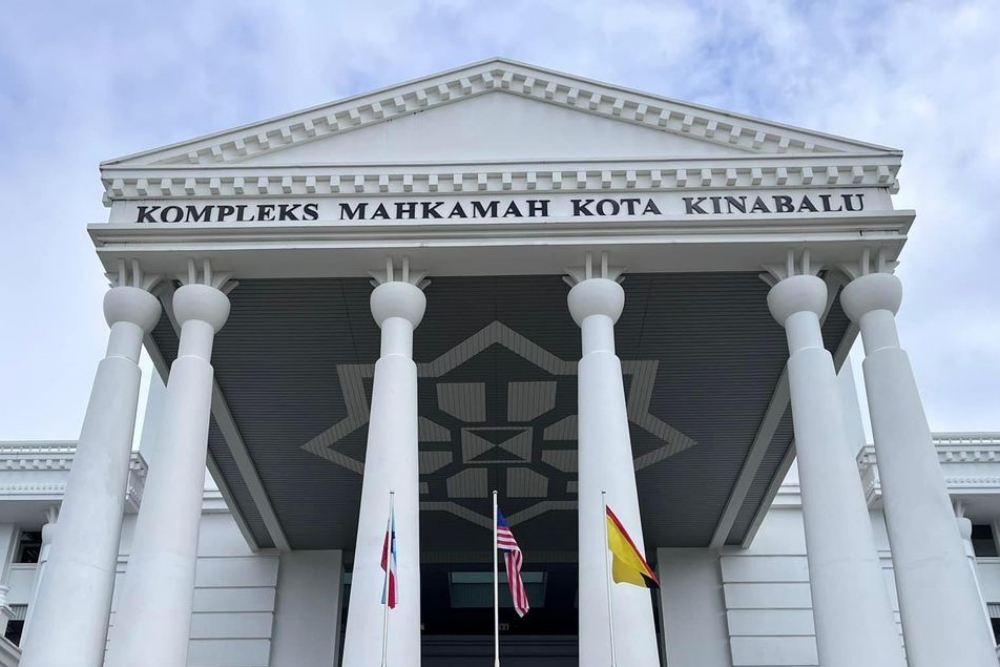ADVERTISE HERE

An-Naim Mosque next to the Good Shepherd church in Miri co-existing peacefully.

THIS week, I might meander a bit. There are many topics to dwell on, but two stand out.
One is like a lingering cancer. It has hung around the world for decades.
However, it is complicated and the subject of many contradicting assertions. It arouses such divisive emotions that friends might become erstwhile friends.
I am talking about the Palestine story.
I started the week with the intention of writing about it, but soon realised that it’s a subject that would demand a much longer and deeper study. So, that has to wait a few weeks while I try to educate myself.
The other is the recent visit of Pope Francis, the head of the Catholic Church (over 1.3 billion followers). He started with a visit to Indonesia, the world’s largest Muslim-majority country.
This was followed by His Holiness’s visit to Papua New Guinea, East Timor and Singapore.
This is a very significant event, but it is equally significant that he was not invited to visit Malaysia, the other important country in this region. However, this is not the focus of the article for now.
Let me just share what I discern the key messages of the Pope.
Pope Francis emphasised several key messages:
- Interfaith dialogue: He stressed the importance of dialogue between different religions, promoting peace and mutual respect among diverse faith communities.
- Environmental stewardship: The Pope highlighted the urgency of addressing climate change and protecting the planet, particularly in regions vulnerable to its impacts.
- Social justice: He called for attention to the marginalised and the poor, advocating for policies that promote equality and human dignity.
- Youth engagement: The Pope encouraged people to participate actively in their communities, and lead initiatives for positive change.
- Global solidarity: He underscored the need for countries to work together in facing global challenges, fostering a spirit of cooperation and understanding.
- These themes reflect his mission of promoting peace, compassion, and social responsibility.
Pope Francis’ visit, in particular, to Indonesia marks a pivotal moment for the nation and the broader context of interfaith dialogue. As the world’s largest Muslim-majority country, Indonesia presents unique challenges and opportunities for religious engagement, making this visit especially significant.
Indonesia has a population size of about eight times that of Malaysia, and I presume their racial and religious relation is more complicated and challenging than Malaysia.
Yet the best Malaysia can offer (as expressed by the Muslim political leaders) is that the Muslim majority are very ‘tolerant’ to all the other races and religions.
I hope they are merely confused about the difference between ‘respect or acceptance’ and ‘tolerance’.
One of the central themes of Pope Francis’ papacy has been the promotion of interfaith dialogue. Indonesia, with its diverse tapestry of religions including Islam, Christianity, Hinduism, and Buddhism, serves as a crucial platform for this dialogue.
The Pope’s presence signals a commitment to fostering mutual respect and understanding among different faith communities.
I hope we can accept the path that Indonesia has taken.
Let me share my experience in Jakarta some time ago. I was having breakfast at a hotel with a friend from Kuching, a devout Muslim.
“Hey, there is bacon over there,” he said.
Bacon in a five-star hotel? That is something I have never heard of in Malaysia.
“Yes, there is a whole section of non-halal food over there.”
I asked: “Don’t you mind me having non-halal food on the same table as you?”
“No, not at all,” said my Muslim friend.
I wonder if he would ever say that in Malaysia.
Throughout history, religion has been both a source of profound inspiration but also a catalyst for conflict. There is a saying that ‘more men (and women) have been killed in the name of God (whatever name your religion called it) than all the pestilence and wars of the world’.
However, while differing beliefs and practices can lead to division, I believe that the fundamental principles of most religions advocate for unity, compassion, and understanding among humanity.
At the heart of many religious traditions lies a core set of values that promote harmony and cooperation.
Virtues such as love, compassion, forgiveness and respect for others are prevalent in major world religions, including Christianity, Islam, Buddhism, Hinduism, and Judaism.
I believe the ‘Golden Thread’ that runs through all religions is that we accept the existence of a ‘Divine Being’, and that we treat others as we wish to be treated.
There is a vignette that has been shared for some time. It tells of a conversation between a philosopher and a religious leader.
Philosopher: Sir, in your opinion, which is the best religion?
Religious leader: The religion that makes you a better person is the best religion for you.
I believe that if Pope Francis had been asked this question, he would have given the same answer.
Some years ago, I had the chance to talk to a progressive priest. I was pondering on the question of the shared value of the different religions and their relation to the ‘Divine’.
He said: “Perhaps we can use the prism analogy. When a beam of light is passed through a glass prism, the white light breaks into constituent colours, namely the full range of the colours of the rainbow.
“All the different colours can represent the different religions, but all lead to one source – the white light, which leads to the Divine.”
When I listen to the speeches of Pope Francis, I believe that is what he is trying to tell us.








 English (US) ·
English (US) ·